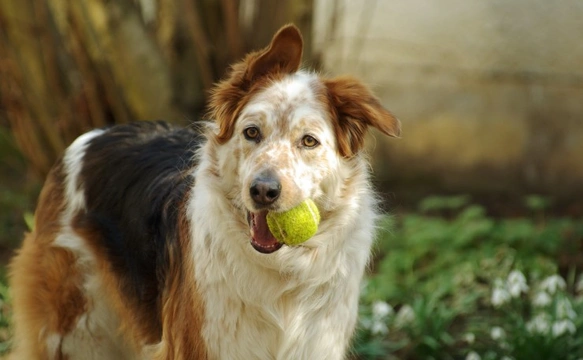Pets
Pets for studWanted petsBreedersAccessories & services
Knowledge hub
Support
Support & safety portal
Five factors to consider in the care of a mature dog
Just as happens with every other animal including humans, dogs go through a wide range of subtle and not so subtle changes as they get older, as part of the linear aging process from puppy to adult to mature to old age.
Keeping up with these changes, knowing how to recognise them and adapting your dog’s care and lifestyle accordingly is important, in order to keep your dog healthy and fit, and give them the best possible chance of living a long, happy life in good health and with a good quality of life.
In order to achieve this, you will need to adapt and make changes to how you care for your dog as they get older, and some of these things will happen at set points-such as changing them to a senior food when they reach a certain age-while others will be dictated by the cues that your dog will give.
Whether your dog is already mature or you simply want to plan ahead and cover all of the bases when it comes to their care, this article will cover five important factors that you should consider and plan for when it comes to caring for your older dog. Read on to learn more.
Age appropriate food
One of the first and most widely understood factors to think about when it comes to caring for a mature or elderly dog is feeding them a diet that is suitable for their age and life stage, by means of changing them to a diet designed specifically for the purpose.
While all dog food looks much the same as any other, the nutritional content, ingredient makeup and even flavours and scents vary from food to food, and picking a diet that is right for your dog’s life stage will help to support them in old age.
Foods designed for senior dogs are rather different from foods for younger dogs, in a range of key areas. They tend to be slightly lower in protein than food for younger dogs, as older dogs are less active, and they may also be softer in order to take account of older dog’s sometimes having lost or missing teeth. They tend to be more fragrant and tasty too, as older dogs begin to lose their sense of smell and taste, and so need something appealing to encourage them to eat.
Foods for older dogs also often contain supplements and nutrients designed to tackle common problems of aging, such as urinary tract health, mobility, and brain aging.
Keeping your dog supple and mobile
Older dogs will tend to be slightly less full of beans and energy than their younger counterparts, but many older dogs can still give the average young whipper snapper a run for their money! All dogs need to be walked and exercised regularly, but you must of course make allowances for their age, in terms of what they can do comfortably and how long they will walk for happily without getting overtired or stiff.
This is one area in which you should take your cues from your dog-if they are still keen to run around and be very active, keep this up for as long as possible. However, when they do start to slow down, make the appropriate allowances for them and shorten their walks or make them a little less lively, and remember that older dogs are more prone to injuries, and may be stiff in the mornings.
Arthritis is common in older dogs too, so keep an eye out for the warning signs.
Brain aging
As well as the physical changes that old age brings about in dogs, it is important to factor in the effects of brain aging as well, and the mental decline that older dogs go through along with their physical changes in condition.
As dogs get progressively older, the effects of brain aging will become apparent, and older dogs can and sometimes do suffer from conditions such as dementia. Make allowances for your dog’s brain changes, which can lead to temperament and behavioural changes and forgetting things that they previously learned. Talk to your vet about supplements and activities that can help to keep your dog’s brain active, and delay the effects of old age.
The senses
Older dogs’ senses begin to decline in old age, and this will be apparent in a lot of different areas. As we mentioned above, food for older dogs tends to be designed to smell and taste more strongly than food for younger dogs, because the dog’s senses of smell and taste decline over time.
Their hearing and eyesight may begin to decline too, meaning that your dog might miss verbal or physical cues from you. Take this into account when giving commands or taking your dog out, and bear in mind the effects this can have.
Monitoring for problems
Your dog should see the vet at least once a year for their vaccinations and health checks, and you should remain vigilant throughout the rest of the year too for some of the common problems and issues that are more likely to develop in older dogs.
Stiffness in the mornings and the onset of arthritis are one of the main ones, and your vet will be able to advise you on ways that you can address this, and make your dog more comfortable.
Older dogs often need attention to be paid to their teeth and gums too, after a lifetime of biting and chewing without dental care, and being able to spot a problem in the making and resolve it will help to keep your dog fit and healthy even when they are very old.



